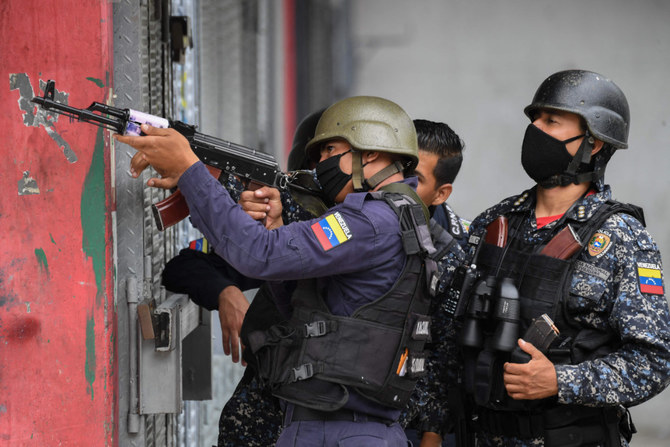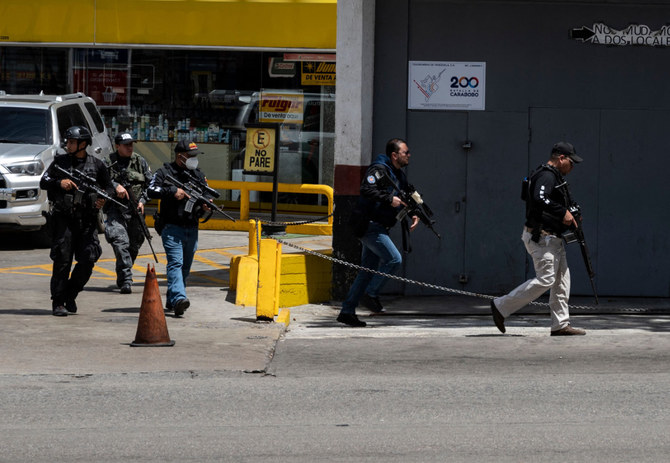DHAKA: When Shahid Sardar started his Facebook page four years ago, he wanted to share his experience aboard a fishing boat. He did not expect the millions of views he would soon attract as he tapped into a content niche that is rapidly gaining popularity among Bangladeshis: life at sea.
Sardar, 35, lives with his wife and son in the coastal Chittagong district in south-eastern Bangladesh. He started to work as a fisherman in 2013, after leaving a job at a hospital canteen in the capital, Dhaka.
As the chief cook on a vessel with a 50-member crew, Sardar sails across the Bay of Bengal on month-long voyages in search of fish. When his videos documenting deep-sea fishing methods and daily life on the boat began gaining traction, he expanded his content to show various marine species found in Bangladeshi waters — many of which are not widely known.
“I think people generally enjoy fish, especially the kinds caught at sea, which are not usually found in local markets,” Sardar told Arab News.
“The beauty of the deep sea also draws people to my videos. For most viewers, these sights are rare and unfamiliar. They don’t have this experience themselves.”
Posting as BD Fisherman on Facebook, he has more than 360,000 followers. His other account, Fisherman Shahid, has another 240,000.
When two of his videos went viral in December 2023, Facebook approved monetization for his page.
“My first video that went viral showed a bulk of yellowfin tuna and some shrimp. The fish were just dropped on the deck ... it was the rainy season. People liked that video a lot. Within 24 hours, it got 3 million views,” he said.
“As I started receiving some money from the videos, I became more motivated to keep uploading and people started liking my videos more and more.”
He now earns an average of about $500 a month from his two pages. That is in addition to his salary of $120 per voyage, plus bonuses based on the catch — about 60 cents per tonne of fish sold in the market.
“In my locality, everyone knows me as Fisherman Shahid. Wherever I go, people come to me just to know how they can earn through making videos and posting them on social media platforms,” Sardar said. “Recently, the friends of my 7th-grader son also visited my home to learn about my video making.”
While for fellow fishers, Sardar’s content has been an inspiration to start their own pages, for some other followers, like Zaved Ahmed, a Bangladeshi migrant worker in Saudi Arabia, watching his videos is a reminder of his own roots.
“I was born in Cox’s Bazar, a coastal area of Bangladesh, and fishing was our family’s profession. Since 2023, I have been living in Jeddah, which is on the coast of the Red Sea. It seems that sea life is something in my blood. That’s why I love watching Sardar’s videos,” he said.
“Whenever I watch his videos, my mind travels to the sea with the fishing boat, as if I were experiencing it with my own eyes.”
But most of those who follow Sardar and other fishermen-influencers have never experienced life at sea.
Watching it on their mobile or laptop screens helps them connect with the sector that each year contributes about 3.5 percent to Bangladesh’s GDP and is the main source of animal protein in the Bangladeshi diet.
“I think most people generally love the sea, but they don’t have the opportunity to witness the mysteries of the deep sea,” said Karimul Maola, a follower of Sardar from Chittagong.
“Through Sardar’s videos, I’ve learned about many seafish that were previously unknown to me. Also, his videos have given me some idea about how a fishing vessel normally operates — something most people don’t know about.”
There is a similar sentiment among the followers of other Bangladeshi fishermen who have shot to social media fame.
On the page of Ehsanul Haque Shaon, a fisherman who has 172,000 followers on Facebook, one follower says watching his video was “like the Bay of Bengal live in front of my eyes!” while another says in amazement that watching the content made them realize that “life is very interesting.”
“How we survive on a boat in the Bay of Bengal,” a video on Fishiib, a YouTube channel focusing on showing the life of fishermen in the Bay of Bengal, has received more than 10 million views in six months.
“I am truly amazed by how these fishermen adapt to life at sea. They face constant challenges like harsh weather and limited resources, yet they find ways to survive and thrive,” one viewer said.
“Their resilience and ability to work together as a community is truly inspiring. It’s a glimpse into a way of life that most of us can only imagine.”






























